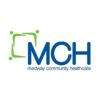Trainee Advanced Clinical Practitioner Primary Care
Job Description
Clinical Practice Assess and holistically clinically examine patients with both minor and complex needs through history taking, physical examination and appropriate use of investigations to confirm diagnosis. Plan, implement and evaluate an effective management plan for the patient, ensuring safe discharge/referral and/or transfer to an appropriate health care service. Provide information and advice on prescribed or over-the-counter medication on medication regimens, side-effects and interactions. Prioritise health problems and intervene appropriately to assist the patient in complex, urgent or emergency situations, including initiation of effective emergency care.
Triage telephone referrals, calls from external clinicians, patients and others into a range of services appropriately as required. Communication Utilise and demonstrate sensitive communication styles, to ensure patients are fully informed and consent to treatment. Communicate effectively with patients and carers, recognising the need for alternative methods of communication to overcome different levels of understanding, cultural background and preferred ways of communicating. Anticipate barriers to communication and take action to improve communication.
Maintain effective communication within the organisation and with external stakeholders. Ensure awareness of sources of support and guidance and provide information in an acceptable format to all patients, recognising any difficulties and referring where appropriate. Non-Medical- Prescribing If you are employed in a prescribing capacity, you must only do this if qualified and competent to do so. This applies to those practitioners with V300 qualification, who have active registration with the NMC or the practitioners professional regulatory body.
With relevant training, authorisation and experience, practitioners may be trained to use a set of specific patient group directions (PGD's). These are applicable only to nominated, authorised and competent practitioners who have undertaken training in this sphere of practice. You must maintain your knowledge and skills with regards to prescribing and administration of drugs, keeping up to date with any changes, alerts, recalls and other reasonable professional knowledge. Delivering a Quality Service Recognise and work within own competence and professional code of conduct as regulated by the NMC/HPC etc.
Understand own role and scope and identify how this may develop over time. Produce accurate, contemporaneous, and complete records of patient consultation, consistent with legislation, policies and procedures. Prioritise, organise, and manage own workload in a manner that maintains and promotes quality. Ensure professional revalidation requirements are met.
Deliver care according to NSF, NICE guidelines and evidence-based care. Assess effectiveness of care delivery through self and peer review, benchmarking and formal evaluation. Initiate and participate in the maintenance of quality governance systems and processes across the organisation and its activities. In partnership with other clinical teams, collaborate on improving the quality of health care responding to local and national policies and initiatives as appropriate.
Support and participate in shared learning across the organisation and wider organisation. Understand and apply guidance that supports the identification of vulnerable and abused children and adults, and be aware of statutory child/vulnerable patient health procedures and local guidance. Leadership Personal and People Development Support staff development in order to maximise potential. Encourage others to make realistic self-assessment of their application of knowledge and skills, challenging any complacency or actions that are not in the interest of the public and/or users of services.
Critically evaluate and review innovations and developments that are relevant to the area of work. Take a lead role in planning and implementing changes within the area of care and responsibility. Work with senior clinical and management teams to ensure sufficient staff of appropriate ability, quality and skill-mix is available to meet current and future service delivery, that selection and recruitment processes are effective and that equality of treatment of the team incorporates quality HR principles and processes. Contribute to the development of local guidelines, protocols and standards.
Maintain effective communication with those responsible for the overall commissioning and procurement process. To attend and be proactively involved in professional meetings at base and corporately. Take the lead/ develop a special interest within certain areas to allow the sharing of clinical knowledge and expertise. Prioritise own workload and ensure effective time-management.
Corporate Responsibility Work as an effective and responsible team member, supporting others and exploring the mechanisms to develop new ways of working. Delegate clearly and appropriately, adopting the principles of safe practice and assessment of competence. Work effectively with others to clearly define values, direction and policies impacting upon care delivery. Discuss, highlight and work with the team to create opportunities to improve patient care.
Management of Risk Manage and assess risk within the areas of responsibility, ensuring adequate measures are in place to protect staff and patients. Monitor work areas and practices to ensure they are safe and free from hazards and conform to health, safety and security legislation, policies, procedures and guidelines. Apply infection-control measures within the organisation according to local and national guidelines. Managing Information Use technology and appropriate software as an aid to management in planning, implementation and monitoring of care, presenting and communicating information.
Review and process data in order to ensure easy and accurate information retrieval for monitoring and audit processes. Learning and Development Undertake the MSc programme and apply the learning gained into everyday practice. Attend allocated university for scheduled learning and meet deadlines for submission of work / exams. Disseminate learning and information gained to other team members in order to share good practice and inform others about current and future developments (e.g.
courses and conferences). Identify you own development needs in line with the MSc programme and service requirement and undertake learning as appropriate to ensure successful completion of the course. Ensure that personal, peer support and clinical supervision needs are met Work with practitioners within gtd healthcare to gain an understanding of the roles within the MDT that form our organisation. Provide an educational role to patients, carers, families and colleagues in an environment that facilitates learning.
Undertake mandatory training as identified within the required timeframe. Other duties: Any other duties, as agreed with the line manager to meet the needs of the organisation. This may include travel to other sites within the organisation.
MNCJobs.co.uk will not be responsible for any payment made to a third-party. All Terms of Use are applicable.
Job Detail
-
Job IdJD3078402
-
IndustryNot mentioned
-
Total Positions1
-
Job Type:Full Time
-
Salary:Not mentioned
-
Employment StatusPermanent
-
Job LocationAshton-Under-Lyne, ENG, GB, United Kingdom
-
EducationNot mentioned


